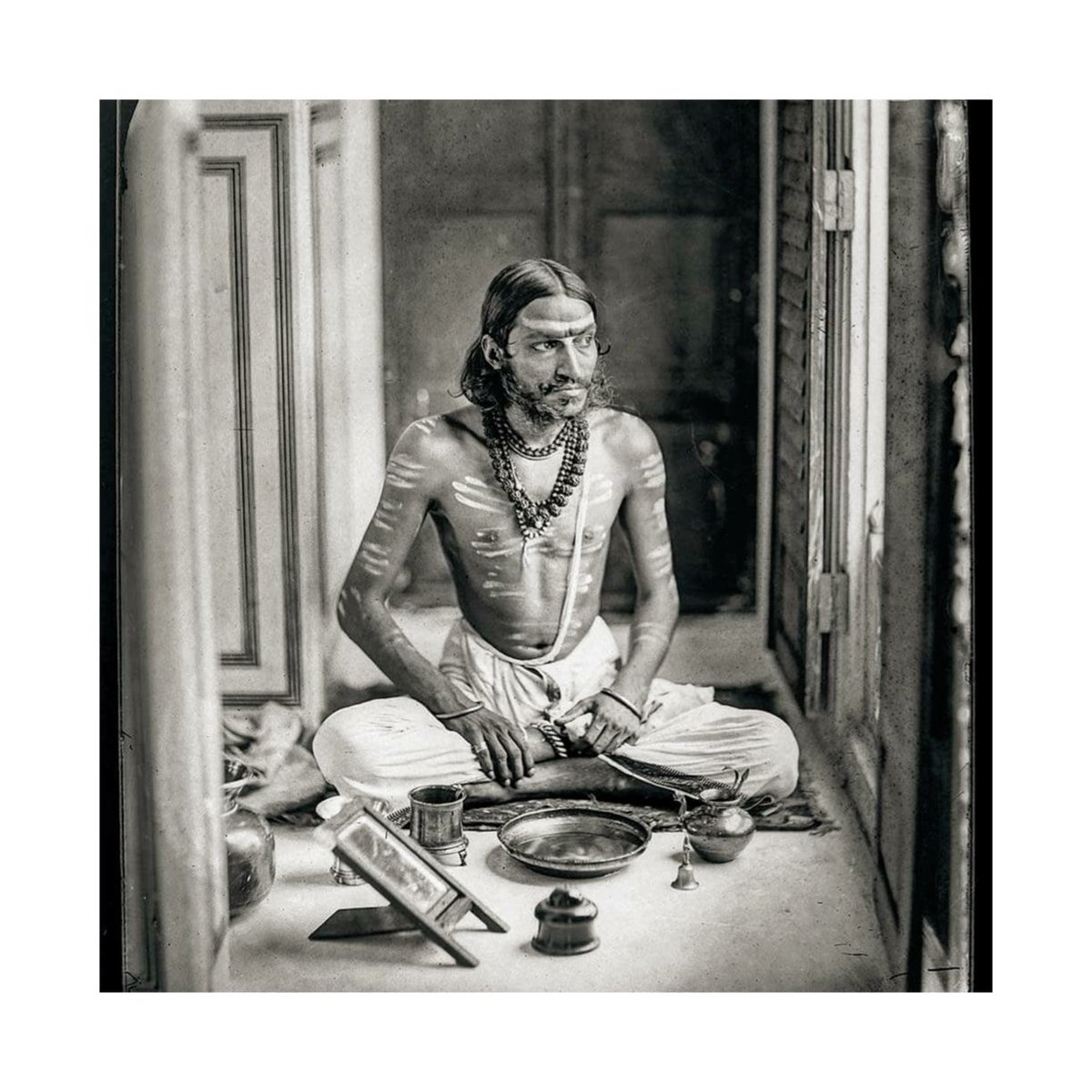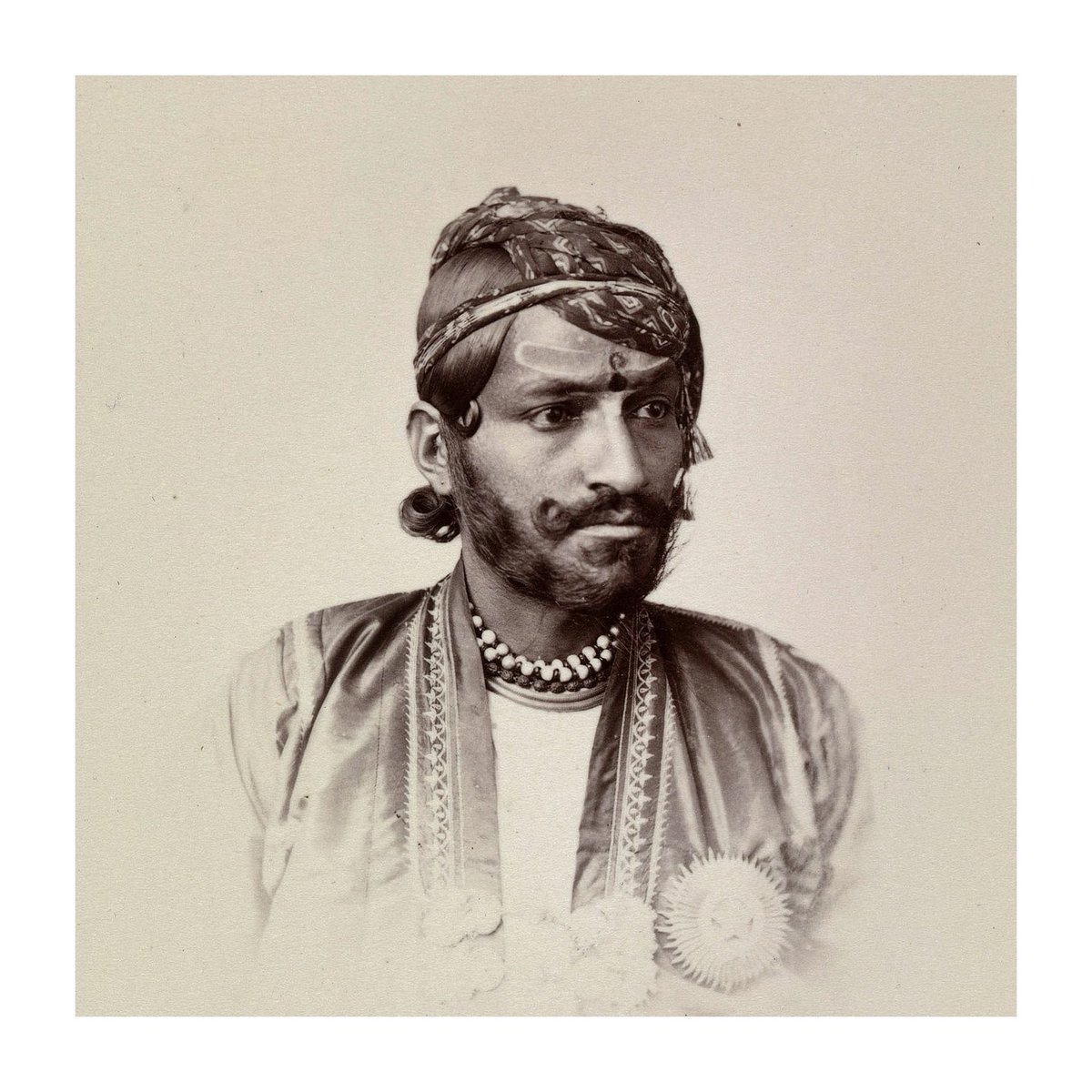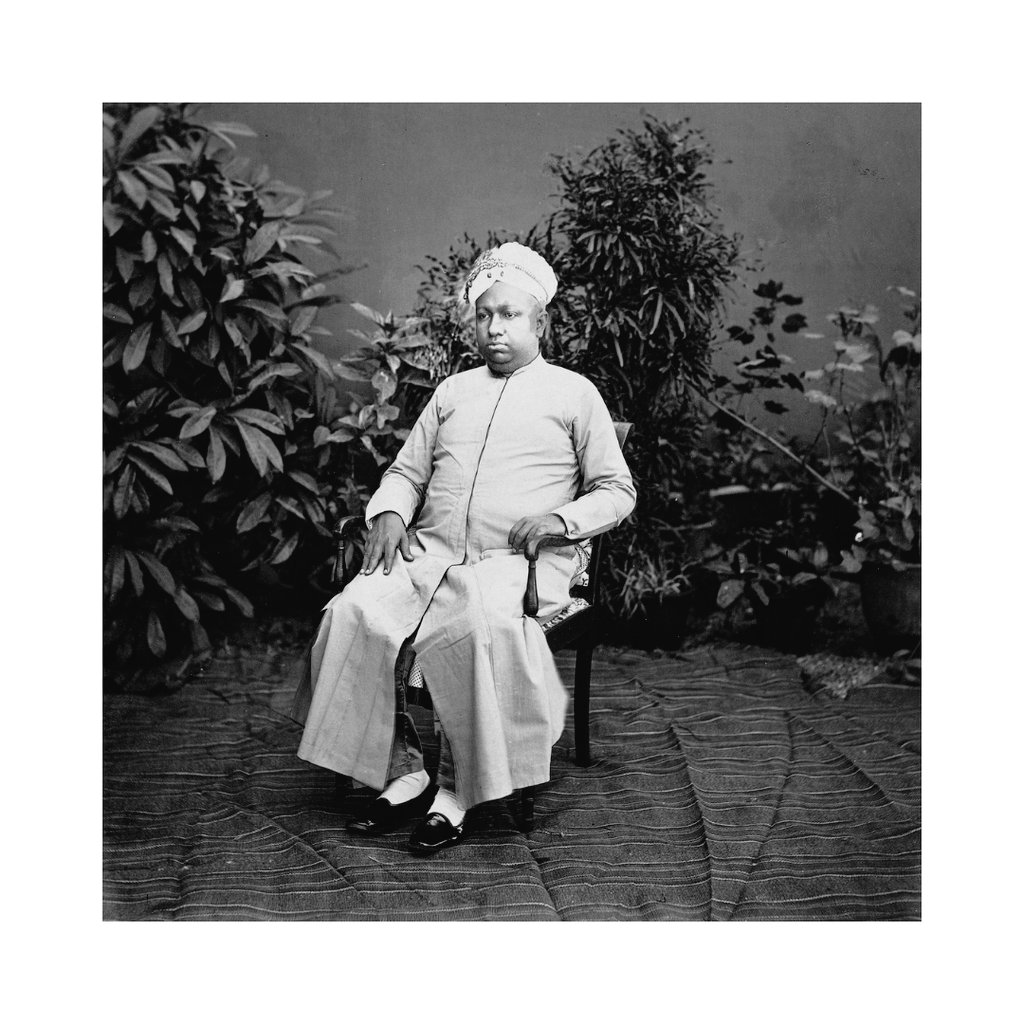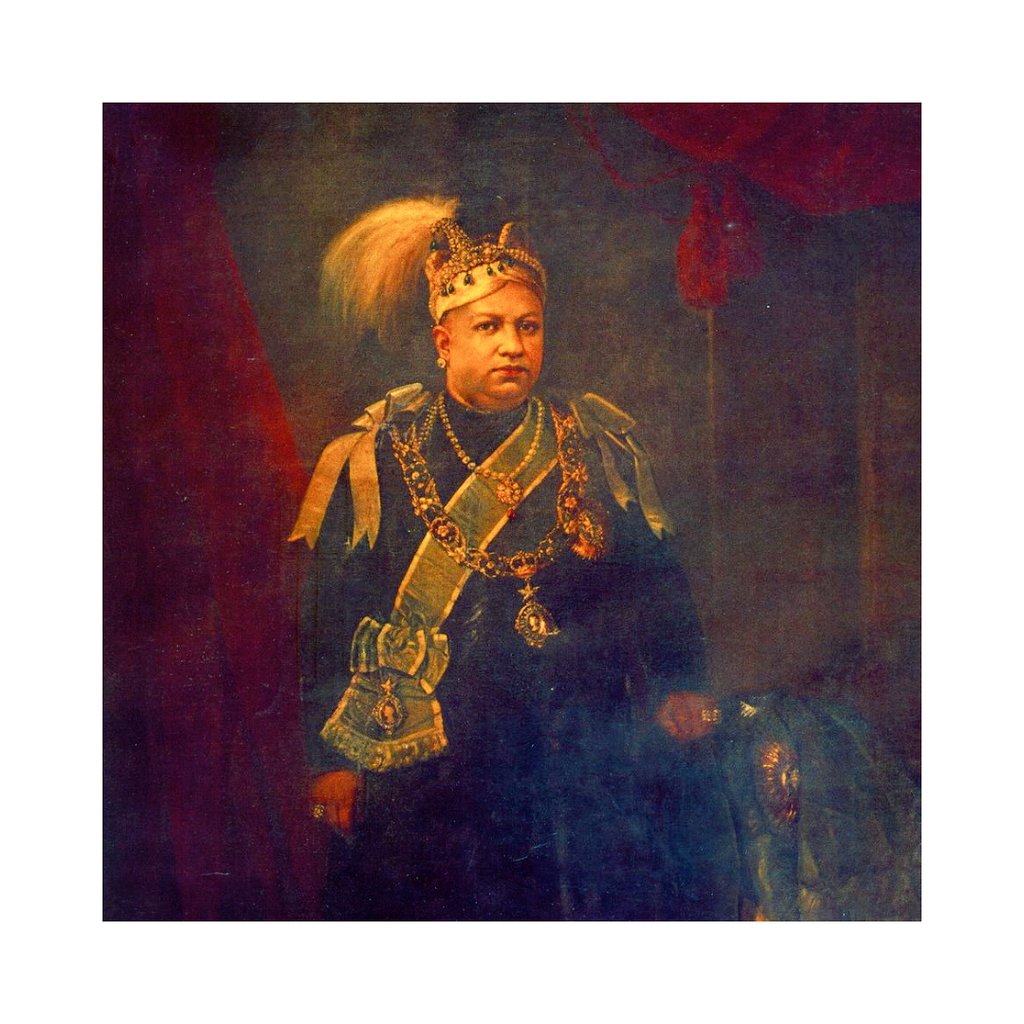
Ram Singh II (1833-80) of Jaipur gets only a page in #FalseAllies but what a shrewd little person he was. Generally discussed these days for his love of photography (which included taking naughty pictures), what we don't discuss enough is how shrewd a political figure he was.. 

Early in his career, he made use of the British to cut to size certain overpowerful nobles (who had armies and their own territorial units) and assert his own authority over Jaipur. He also strategically decided where to allow 'progress' and where he would rather not.. 

For example, setting up a college, a girls' school, library, hospital etc. were all welcome. So too roads and railways, so long as they strengthened his hold over the state, were sanctioned. But revenue management was *not* modernised and made transparent for a simple reason..
As per his treaty with the British, they would get a cut of any revenue above 40 lakh rupees. So the maharajah, by keeping accounts hazy and by managing it 'traditionally', successfully hoodwinked the Raj. As Robert Stern notes..
in 1871 he claimed he had 39 lakhs in revenue when in reality it was close to 60 lakhs! He refused to allow the British any direct dealings with his nobility, because he knew the two could unite and reduce his own power. All the while, he proactively deployed his charm..
to impress Raj representatives and stay in their good books. And because his administration was successful and plenty of 'modern' things were being done, the British could not quite compel him to reveal his internal affairs..
His heir continued the tradition: in 1905 when he made donations to a British charitable fund, weary Raj officials privately noted what he was doing: trying to 'ride the Government of India from paying inconvenient attention to the internal conditions of his state.'
Clever operators and shrewd politicians, Jaipur's maharajahs were certainly unequal to the Raj in power--and yet they managed to preserve their authority on their own turf and limit not only what the British could do, but also how much they might see and know. 

(And no, will not be posting any of his naughty photographs 🙏)
(And standard disclaimer that this is a Twitter thread from someone not used to threads :) Book has more layers and more complex story to tell about the Rajput system and how it fared under the Raj.)
amazon.in/FALSE-ALLIES-I…
amazon.in/FALSE-ALLIES-I…
• • •
Missing some Tweet in this thread? You can try to
force a refresh







